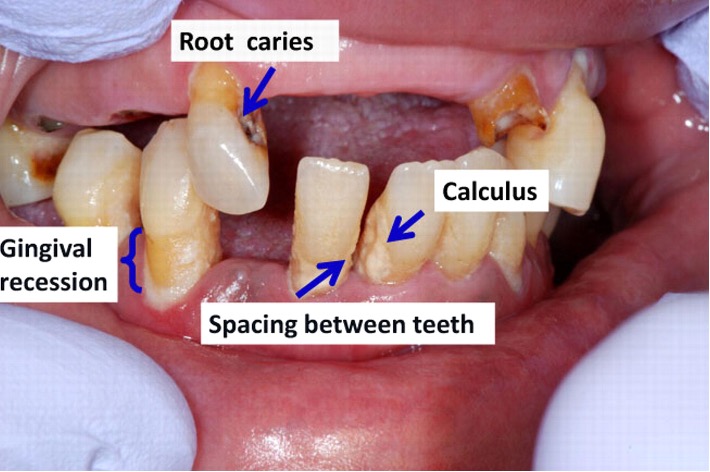Diabetes spares no organ; the eyes, the brain, the feet, the heart and also the mouth. The disease is due to either the pancreas not producing enough insulin or the cells of the body not responding properly to the insulin produced. If left untreated, diabetes can cause a number of complications. Some of these complications include a doubling of the risk of cardiovascular disease and increasing the prevalence of gum disease.
In this issue, we will discuss how diabetes affect your dental health.
According to the Ministry of Health, 7 % of the local population, about 28,000 people, are pre-diabetic, and 9.2 percent, around 36,000 people, have diabetes. The Bahamas is leading (the world) in the prevalence of diabetes,” said Dr. Graham Cates, president of ACE Diabetes. The prevalence of diabetes is directly related to our lifestyle choices. Diabetes, is now the fifth leading cause of death in The Bahamas.
Diabetics are at greater risks for poor dental health. Our body’s immune system is made up of white blood cells called neutrophils, whose sole function is to eat up the bacteria and stop them. However, in many diabetics the neutrophils no longer can sense the bacteria so gum disease spreads and the pockets get deeper. This means bone loss and early tooth loss.
Gum disease involves the loss of bone support for the teeth. Statistics by the American Academy of Periodontology place periodontal disease at 50 % of the adult population. This makes periodontal disease one of the most prevalent diseases in The Bahamas. It is usually identified by a dentist or hygienist during your dental examination or cleanings. The bone loss forms a “pocket”; measuring the distance between the top of the gum and the underlying bone level. The deeper the pocket, the more severe the disease.
Oral care is critical to your overall health. Infections such as gum disease cause your blood sugar level to rise. This in turn, makes your diabetes more difficult to control. Preventing and treating periodontitis with regular dental cleanings can help improve blood sugar controls.
Make a commitment to manage your diabetes. Monitor your blood sugar level and follow your doctor’s instructions for keeping your blood sugar level within your target range. The better you control your blood sugar, the less likely you are to develop gingivitis and other dental problems.
Brush your teeth at least twice a day. Brush in the morning and especially at night just before bed time. Use a soft-bristled toothbrush and a toothpaste that contains fluoride. Avoid vigorous or harsh scrubbing which can irritate your gums and damage your teeth. Get a new toothbrush at least every three months.
Floss your teeth at least once a day. Flossing helps remove bacterial plaque between your teeth and under your gumline. If you have trouble getting dental floss through your teeth, use a waxed floss. If it’s still too difficult to manipulate the floss, then use a floss holder.
Schedule regular dental visits. Visit your dentist at least twice a year for professional cleanings, X-rays and follow-ups.
Make sure your dentist knows you have diabetes. Every time you visit your dentist, remind them that you have diabetes. Make sure they have a contact information for your medical doctor.
Helping yourself to effectively manage diabetes is a life-long commitment that includes proper dental care. Undoubtably, your efforts will be rewarded in the long term with a greater sense of health and vitality.
Dr. Kendal V. O. Major is Founder and CEO of Center for Specialized Dentistry which is a comprehensive family dental practice operating in Nassau and Freeport. He is the first Bahamian Specialist in gum diseases and dental implants since 1989. He also is a certified Fast braces provider. His practice is located at 89 Collins Avenue, Nassau at (242)325-5165 or [email protected].

Severe dental problems related to diabetes






